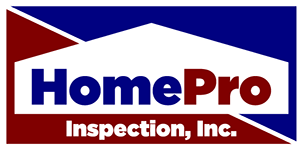Mold Inspection Types and Pricing
For most homes, mold inspection may not be necessary. If the home is dry then normal mold growth should be well controlled already.
For homes that are damp, wet or have had recent moisture issues such as any type of flooding either from heavy rains or broken plumbing pipes then mold inspection or mold testing should be considered.

Mold Inspection

HomePro Inspection Inc offers complete whole house mold inspection and limited mold inspection services. Since mold is a common reaction to an excess uncontrolled moisture problem it is critical to locate the source and cause of the undesirable moisture. Typically a complete mold inspection would be conducted if you do not know where the source of the excess moisture is coming from or if you are unfamiliar with the home such as a home you are considering purchasing. A limited mold inspection works well if you know the source of the undesirable moisture and have seen apparent mold growth on moisture damaged areas. Roger Williamson of HomePro Inspection Inc can help you decide which type of mold inspection is best for you.
Exact mold inspection pricing will be dependent on your specific circumstances. The fees quoted below provide you with a general guideline for the type of inspection performed and base pricing for each type inspection.
Complete Mold Inspection
Base fee for Complete Mold Inspection
includes building moisture inspection, 4 samples, lab analysis and overnight shipping
$450 performed without a home inspection
$250 performed during a home inspection
(save $200*)
A complete mold inspection includes an inspection for obvious undesirable moisture conditions. The moisture inspection portion for a complete mold inspection includes a non-invasive visual examination of the readily accessible, visible, and installed systems and components of the building.
Complete building mold inspection report will include:
– moisture intrusion,
– water damage,
– musty odors,
– apparent mold growth, or
– conditions conducive to mold growth;
– results of a laboratory analysis of all mold samplings taken at the building; and
– any system or component listed in the Standards of Practice that were not inspected and the reason(s) they were not inspected.
Complete mold inspection sampling/lab analysis includes:
– two air samples at exterior for comparison use
– one air sample at interior from an often used area
– one additional swab, tape or air sample as needed
– samples beyond the four included are at additional fee
* The moisture inspection performed during a home inspection is similar to the moisture inspection performed during a complete mold inspection so there is a significant cost savings scheduling both your home inspection and your complete mold inspection at the same time.
Limited Mold Inspection
Base fee for Limited Mold Inspection
includes limited moisture inspection, 2 samples, lab analysis and overnight shipping
$350 performed without a home inspection
The limited mold inspection does not include a visual examination of the entire building, but is limited to a specific area of the building identified and described by the inspector. As a result, moisture intrusion, water damage, musty odors, apparent mold growth, or conditions conducive to mold growth in other areas of the building may not be inspected.
Limited area mold inspection report will include for area:
– moisture intrusion,
– water damage,
– musty odors,
– apparent mold growth, or
– conditions conducive to mold growth; and
– results of a laboratory analysis of all mold samplings taken at the building
Limited mold inspection sampling/lab analysis includes:
– two samples either swap, tape or air samples as needed
– samples beyond the two included are at additional fee
** The moisture inspection performed during a home inspection is more exhaustive than the moisture inspection performed during a limited mold inspection so there is a cost savings scheduling both your home inspection and your limited mold inspection at the same time.
Mold is Not Always Obvious
The Photos Below are NOT MOLD but are Often Misidentified as Being Mold

The black embossed dots that you see on the floor joist in the adjacent photo are not mold. They are the feces from the Rhaphidophoridae commonly called camel crickets or cave crickets.

 Here is a closer view of a camel cricket or cave cricket also known as Ceuthophiluscricket. This cricket is common to our area. While such crickets are only present in damp areas the crickets do not cause mold. If someone tells you camel cricket feces is mold you should seek the advise of a trained professional such as calling HomePro Inspection.
Here is a closer view of a camel cricket or cave cricket also known as Ceuthophiluscricket. This cricket is common to our area. While such crickets are only present in damp areas the crickets do not cause mold. If someone tells you camel cricket feces is mold you should seek the advise of a trained professional such as calling HomePro Inspection.

















